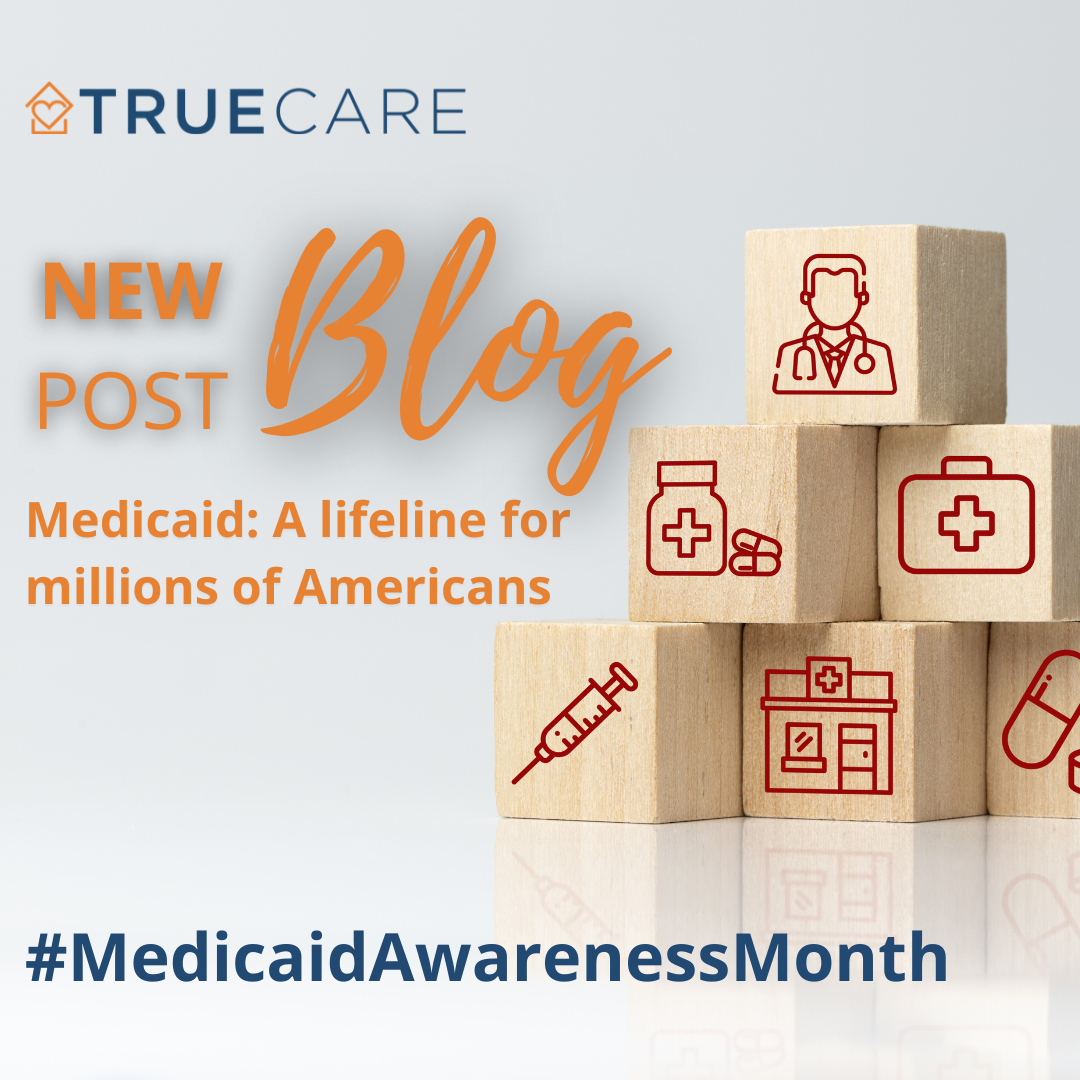This April marks the 5th Annual Medicaid Awareness Month. There has never been a better time to raise awareness about Medicaid’s importance in American communities. It is especially critical now as we as a society come up with long-term approaches to managing the COVID-19 pandemic, which had a particularly hard impact on lower-income communities that are more likely to rely on Medicaid. Medicaid provides key funding for hospitals and helps patients get the care they need. Medicaid awareness month is intended to raise understanding for people who may not realize that they are eligible for Medicaid or may not be aware of the range of services that are covered. By increasing awareness, more people may be able to access the care they need to keep themselves and their families healthy.
What is Medicaid?
Medicaid is a U.S. government-funded program that provides health insurance for individuals with limited financial resources. Medicaid is the largest source of long-term care coverage for Americans, covering 18.9% of U.S. citizens. Medicaid offers benefits not covered by the other main government-funded insurance program, Medicare, like nursing home care and personal care services.
If you’re eligible for Medicaid, you can apply year-round through your state's Medicaid website or at healthcare.gov, the federal health insurance marketplace. If you apply for Medicaid through healthcare.gov and it looks like you qualify, the state agency will contact you about enrollment. Some states also let you print out paper applications you can mail, fax, or return directly to your local government office.
To complete your Medicaid application, you will likely need to provide documentation that meets your state's requirements such as:
- Your birth certificate or driver's license, to serve as proof of age and citizenship
- Recent pay stubs or tax returns, to serve as proof of income
- Copies of bank statements
- Proof of address, which could include a lease, utility bill statements or a copy of your mortgage
- Medical records to serve as proof of disability
States have 45 days to process your Medicaid application. They have 90 days if eligibility is tied to a disability, since disability can lead to a permanent drop in income. The process may be delayed if all the required documentation isn’t received, so it’s important to make sure that you gather all required documentation before submitting your application.
How do I know if I qualify for Medicaid?
Medicaid is an “entitlement” program, which means that anyone who meets eligibility rules has a right to enroll in Medicaid coverage. Though it varies depending on which state you live, Medicaid eligibility requirements are broadly based on:
- income
- age
- disability
- pregnancy
- household size
- applicant’s household role
Not all people with low-incomes are eligible for Medicaid. If you don't qualify, don’t give up! You might still be able to get subsidized health insurance through healthcare.gov, such as the Essential Plan or other subsidies for Marketplace plans run by private insurance companies. However, only certain life events allow you to apply for a Marketplace healthcare plan outside of open enrollment, which takes place from November 1st to January 15th.
How does Medicaid vary across the states?
Medicaid is a joint federal and state program, meaning policies, eligibility, and services vary state by state. Because the federal guidelines are broad, states have a great deal of flexibility in designing and administering their Medicaid programs. Along with this, states vary in the amount of low-income, uninsured, and aging populations that reside within them. States can receive federal funds to cover “optional” populations such as children and seniors, and some states even have different names for their Medicaid programs. The reality is, states can operate their Medicaid programs however they please, as long as they’re run within federal guidelines.
Medicaid and Home Care
Medicaid covers multiple Home Care programs. These are Medicaid-funded, long-term-care programs designed to help eligible elderly or disabled individuals remain safely at home, rather than in a nursing home. These Home Care programs have different eligibility requirements, but they all require that you be eligible for Medicaid. The different programs include:
- Personal Care Program (Medicaid-funded Home Care): covers Home Attendant and housekeeping services for individuals who struggle with at least one of the Activities of Daily Living. To be eligible for this program, individuals must be exempt from Managed Long-Term Care or Managed Care programs.
- Managed Long-Term Care Program: covers Case Management, Nursing, Home Health Aides, Home Attendant services, and Physical Therapists for people who are Medicaid eligible, or eligible for both Medicaid and Medicare, and are medically eligible for long-term care services.
- Assisted Living Program: state-administered long term residential care
- Long-Term Home Health Care Program: covers medical, Nursing, and rehabilitative care provided at home to people who are otherwise medically eligible to be in a nursing home. Individuals' care costs must be less than the nursing home costs in their local county to qualify for this program.
As of today, there are over 92 million individuals enrolled in Medicaid. Studies have indicated that Medicaid expansion efforts have increased access to care, improved financial security, led to better health outcomes, and played a pivotal role in reducing health care disparities between race and class lines. As Medicaid continues to evolve and expand, more people could stand to benefit from its services. During this Medicaid Awareness Month, take some time to do your own research about Medicaid and see if you or a family member may be eligible. Medicaid eligibility opens the door to a range of state and federally funded programs not always available to people on employer-funded insurances.
Sources:
https://www.kff.org/interactive/medicaid-state-fact-sheets/
https://www.nyc.gov/site/hra/help/long-term-care.page




